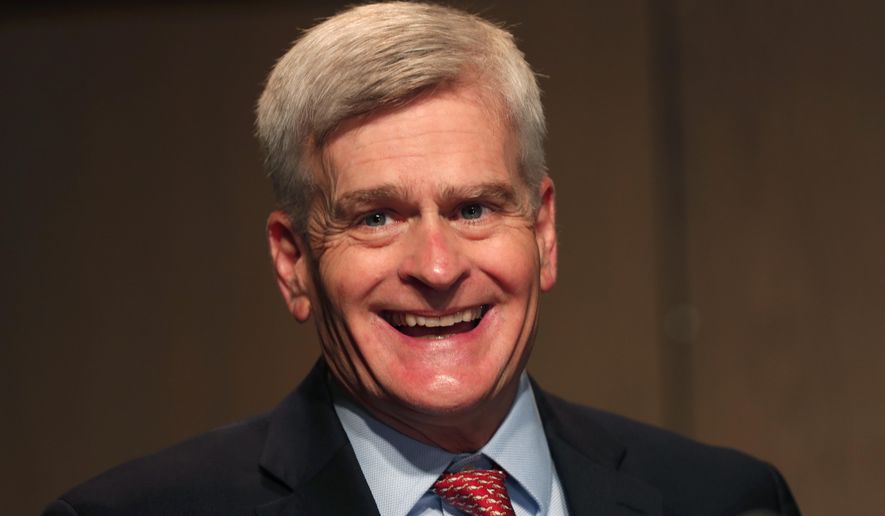BATON ROUGE, La. (AP) - Republican U.S. Sen. Bill Cassidy won’t square off in person with his primary Democratic challenger or any of his opponents ahead of the Nov. 3 election, marking this as Louisiana’s first Senate race in more than 20 years not to feature a TV debate.
Cassidy’s campaign said the GOP incumbent hasn’t received a “firm invitation” to a television debate this election. But he only apparently was interested in participating in debates that would involve allowing all 14 of his competitors to crowd the stage in the coronavirus pandemic, even those who have done little to no fundraising or campaigning.
“We will consider all requests that allow every candidate to participate,” Cassidy spokesman Ty Bofferding said in a statement.
His chief Democratic opponent, Shreveport Mayor Adrian Perkins, said Cassidy is ducking the scrutiny that comes with such questioning. Perkins said “several outlets have reached out to our campaign” about debates but Cassidy hasn’t agreed to any of them.
“I think he is afraid and he’s ashamed of his record,” Perkins said at a recent candidate forum that Cassidy refused to attend.
Whatever the reason, this race will be Louisiana’s first U.S. Senate competition without the major contenders on a TV stage hashing out the issues since 1998. The last time it happened, then-Democratic incumbent Sen. John Breaux refused to debate his main opponent, Republican Jim Donelon, then a state representative and later elected Louisiana’s insurance commissioner.
Over the 22 years since that election that Breaux easily won, candidates for open U.S. Senate seats and incumbents running for reelection have participated in face-to-face matchups with their opponents in six different races.
Skipping debates can be a time-honored tradition for officials who feel secure in their reelection bids. Pollster John Couvillon, of JMC Analytics, suggests that’s likely driving Cassidy’s decision, since the Republican is favored to win a second, six-year term in the ruby red state.
“It’s classic incumbent strategy, which is you want to minimize your exposure as much as possible,” Couvillon said. “The moment you agree to a debate, you’re giving that person a platform from which to attack you.”
The pollster said many of those prior debates over the past 20 years that involved then-incumbents Democrat Mary Landrieu and Republican David Vitter happened because they had tougher races than he believes Cassidy faces this time.
“You’ve had all these competitive races for years and years, and that’s started to taper off now,” Couvillon said. “Sen. Cassidy is not in any particular kind of trouble.”
Cassidy, a doctor from Baton Rouge, has the benefit of his state’s Republican voting trends, statewide name recognition and the endorsement of President Donald Trump, who remains popular in Louisiana. The Republican senator also has raised millions more for his campaign than Perkins.
Perkins, a West Point and Harvard educated military veteran who served in Iraq and Afghanistan, launched his campaign in July and has had only a few months to draw donations for the race. Though he’s one of several Democrats in the race, Perkins has consolidated support from Democratic leaders and received endorsements from former President Barack Obama and Gov. John Bel Edwards. But he’s had less money to raise his profile and hammer Cassidy’s record.
The 13 other candidates in Louisiana’s Senate race have had fewer dollars than either Cassidy or Perkins to do much advertising statewide, instead relying on grassroots tactics and social media campaigning.
If Cassidy cannot top 50% of the vote against his 14 challengers in the November primary election, he’ll head to a Dec. 5 runoff against the opponent who receives the most votes. Early voting in the election continues through Oct. 27.
___
Follow Melinda Deslatte on Twitter at http://twitter.com/melindadeslatte.




Please read our comment policy before commenting.